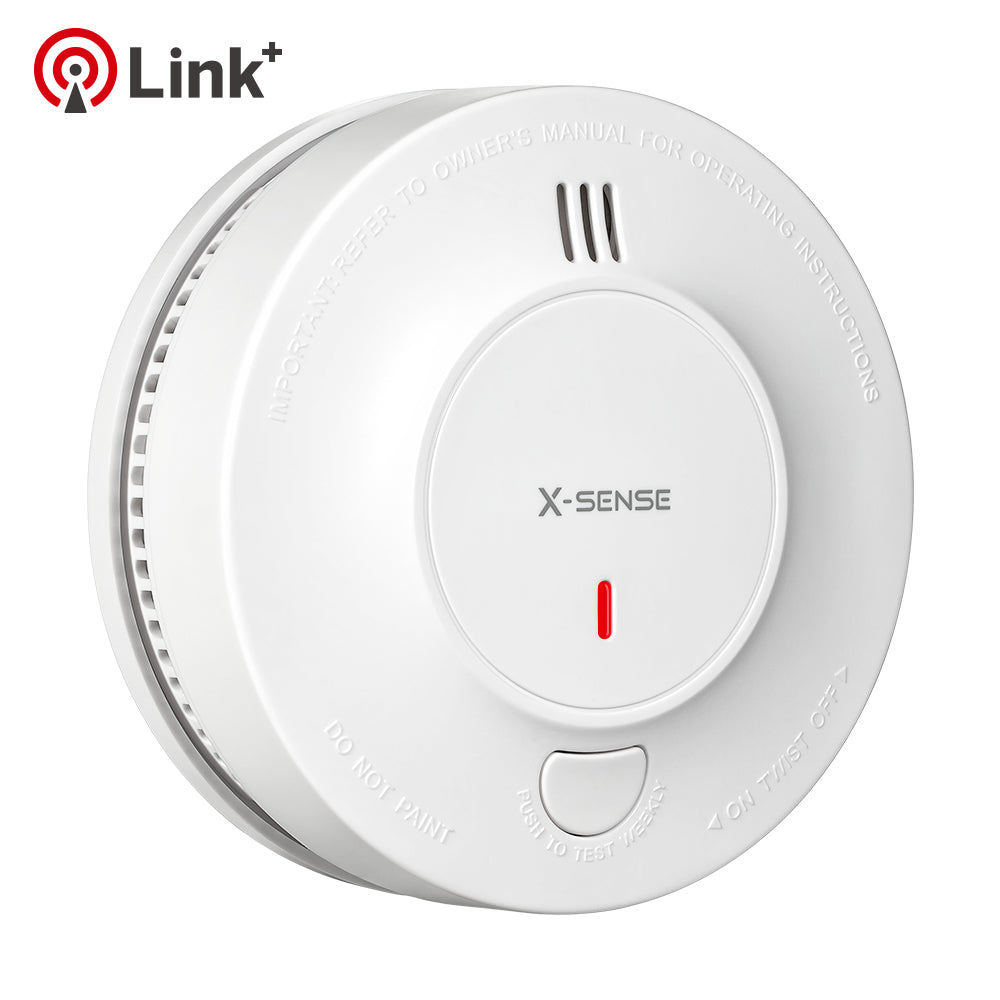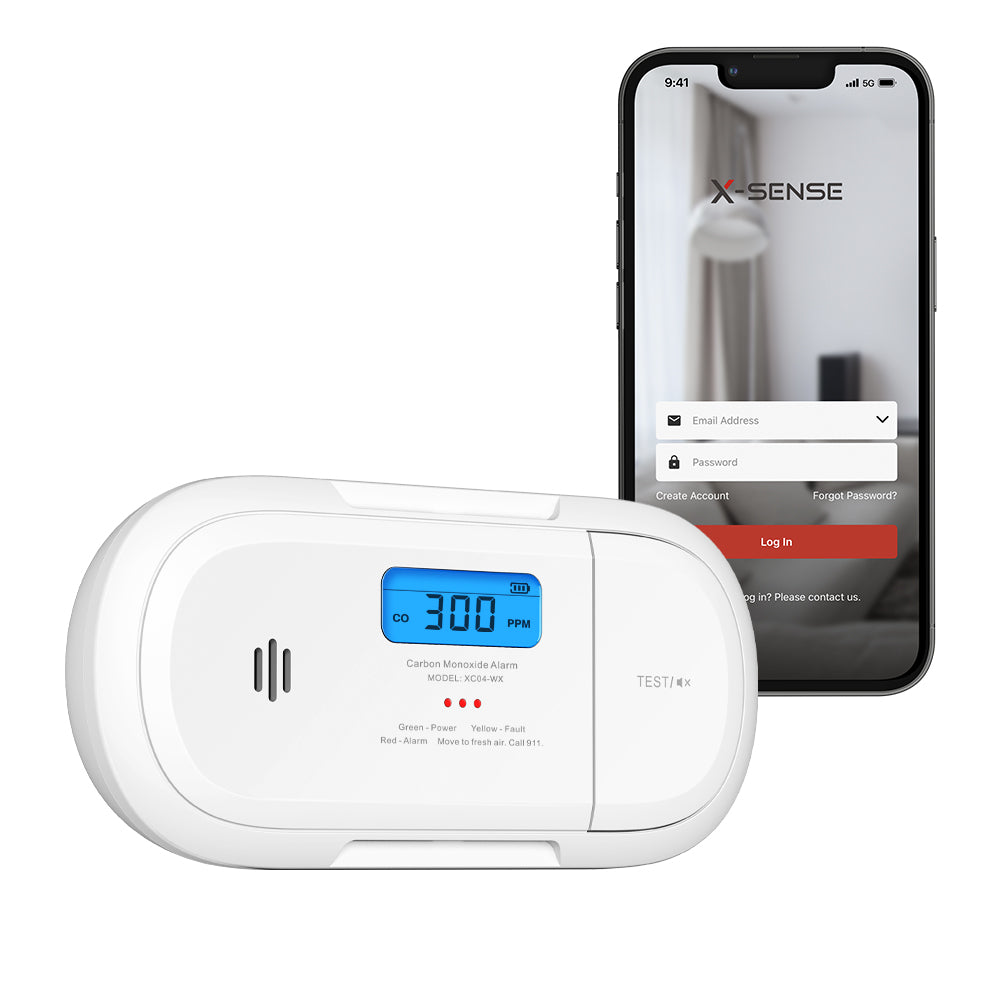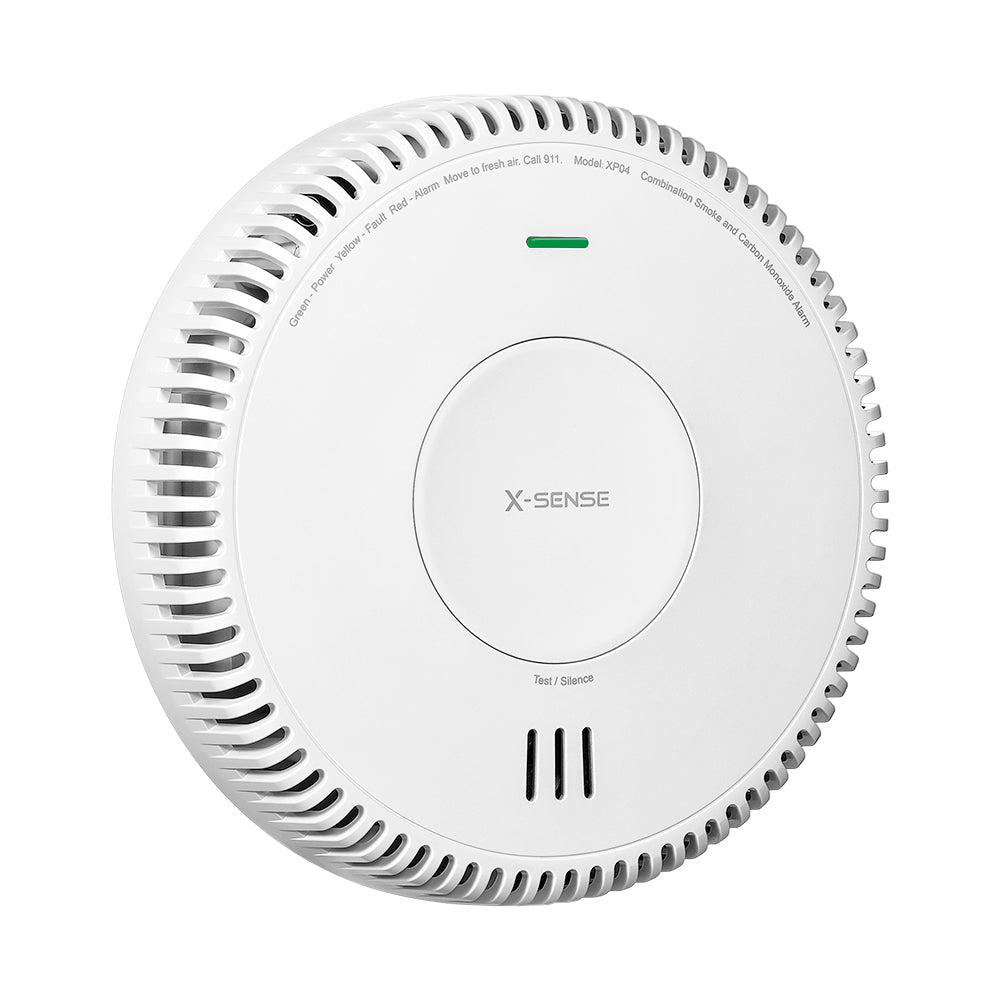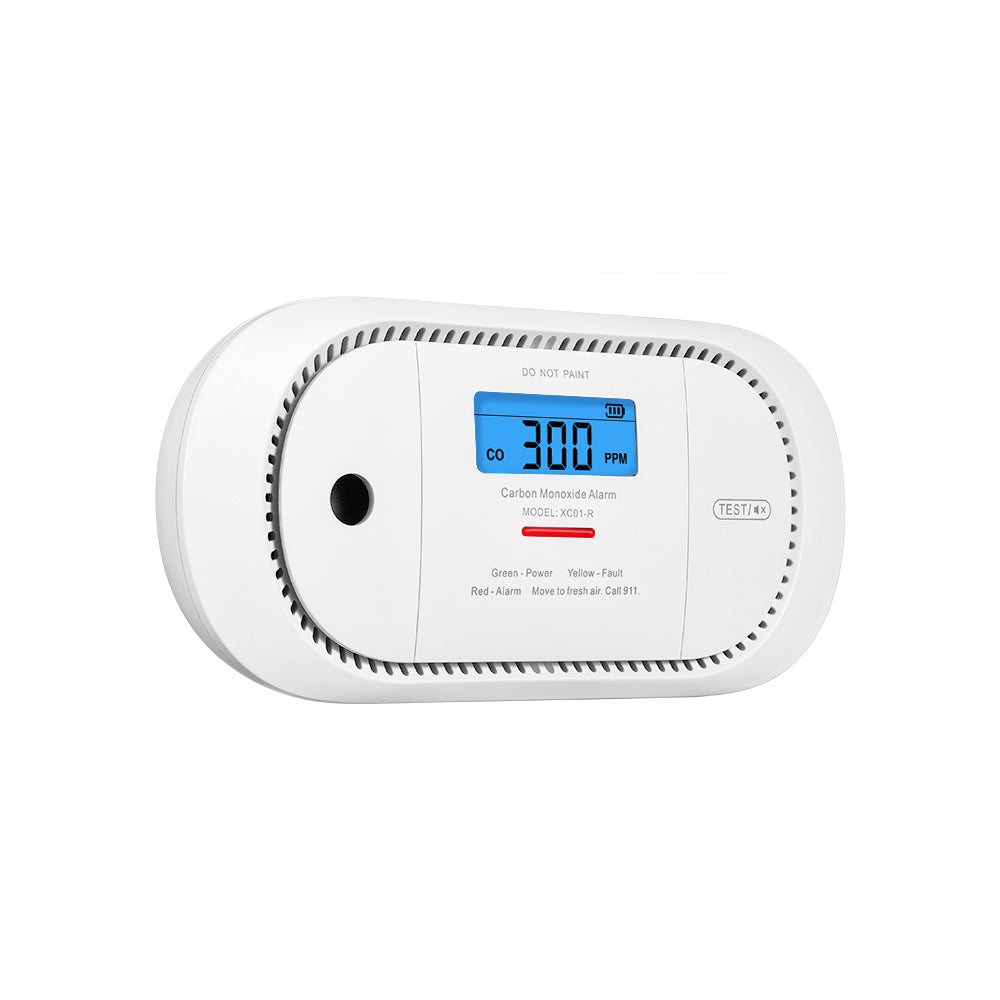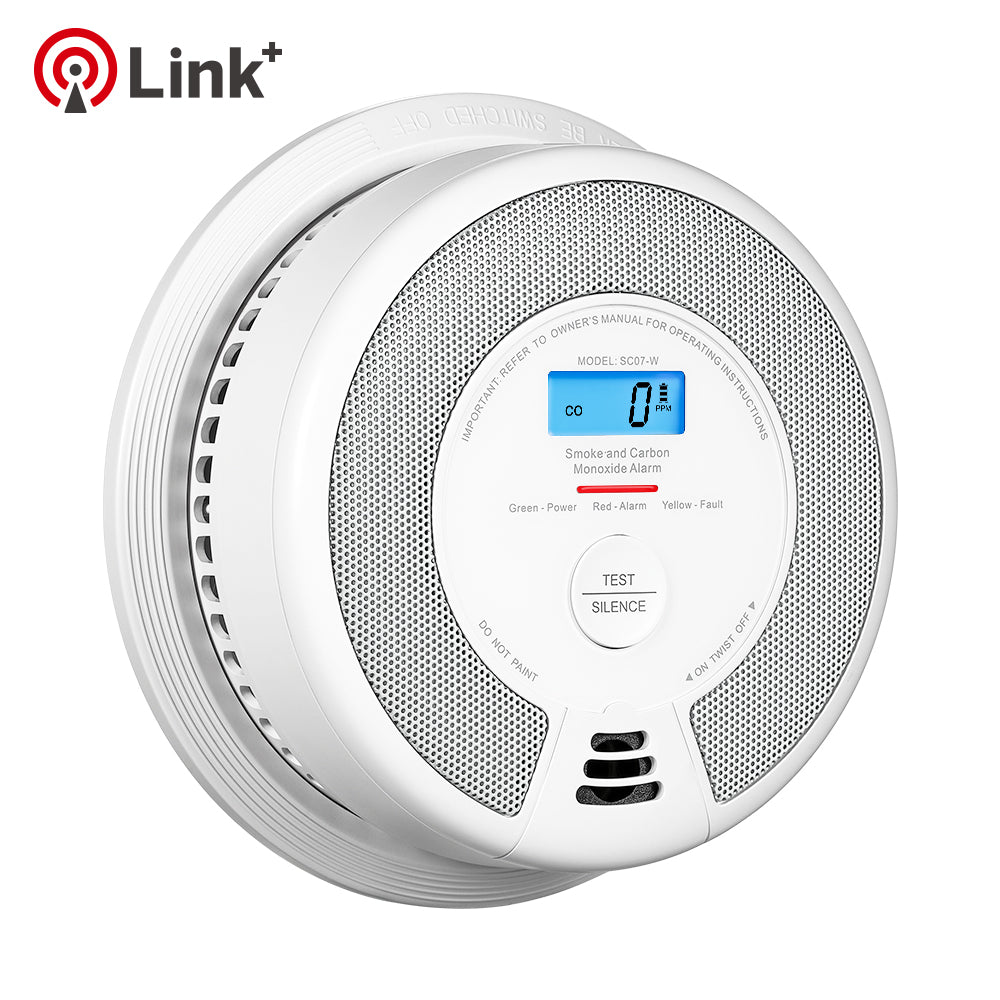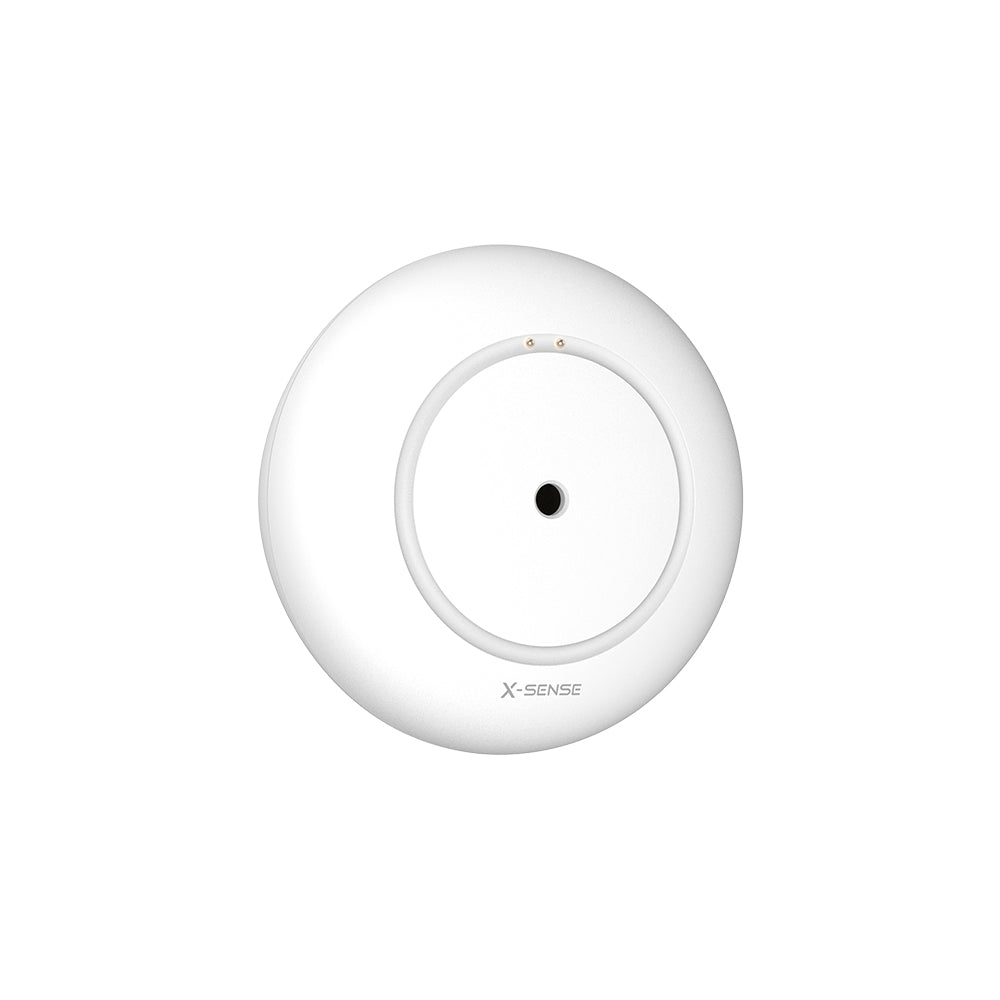Smoke Detector Laws by State
Tue, Mar 30, 2021
The research by NPA says that in the US almost two-third of fire deaths that takes place at home occurs due to the accumulation of smoke and without the proper working of the smoke detector. Having a smoke detector is not just sufficient! Proper maintenance of smoke detector needs to be done and there are sets of smoke detector laws by state that one needs to abide by.

X-Sense XS01-WR Wireless Smoke Detector
- Wireless technology uses radio frequency to transmit and receive messages.
- If one alarm goes off, the rest of the interconnected alarms will alert as well.
- 5-year replaceable battery and 10-year sensor life.
- Advanced photoelectric sensor is more sensitive and reduces false alarms.
$29.99
One such smoke detector law that one needs to follow and be timely is with the period in which the smoke detector needs to be replaced. The smoke detector or smoke alarm needs to be replaced every 10 years. The smoke detector which is made up of batteries can cause great harm. Expired alarms or dead batteries can be a threat to life.
There are various Smoke detector laws by state regarding the type of smoke alarms that must be installed at places. Or at which places the smoke detectors are needed. These smoke detector laws must be strictly adhered to.
Want to Know Whether or Not Your Smoke Alarm Needs to Be Replaced?
There might be the case that you brought your fire alarm in 2011 and thus now 2021 is the time you need to replace the smoke detector or smoke alarm. Hence, you must be aware of the smoke detector laws by the state as abiding by the law is a must. Continue reading to know if your state has listed any smoke detector laws.
- Alabama:
General Residential Smoke Alarm Requirements.
- Alaska:
General Residential Smoke Alarm Requirements.
- Arizona:
Phoenix: Effective from 2014 - Where battery-operated smoke alarms are installed, it has to be UL listed with a 10-year lithium sodium battery. The alarm shall not be used for service after 10 years and the battery needs to change.
- Arkansas:
General Residential Smoke Alarm Requirements.
- California:
Effective from 2014
Following requirements of smoke detector lay by states shall be fulfilled for the approval of state fire marshal:
- Display manufacturing date.
- Provide space for an installation date.
- Include hush feature.
- Include end of life informing the period of replacement. For battery-operated, non-removable and non-replaceable end of life.
- has to be 10 years.
- Colorado:
General Residential Smoke Alarm Requirements.
- Connecticut:
General Residential Smoke Alarm Requirements.
- Delaware:
General Residential Smoke Alarm Requirements.
- District of Columbia:
General Residential Smoke Alarm Requirements.
- Florida:
Effective from 2015, a battery smoke detector must have a non-replaceable, non-removable battery powering the detector for minimum of 10 years.
- Georgia:
Battery-powered smoke detectors built before 1987 must be replaced under the following:
- Smoke alarm older than ten years from manufacturing date.
- If there is no date of manufacturing.
- If the owner fails to acknowledge his capabilities to use it, maintain it over time and smoke detector batteries then may then leave.
- Hawaii:
There are no smoke detector laws by state at this point.
- Idaho:
General Residential Smoke Alarm Requirements.
- Illinois:
- Those systems built before 1988 shall be replaced only if it’s 10 or more years from the manufacturing date.
- It has to be replaced by a long-term and non-removable battery.
- Replacement in case failure of performing an intended task or dead batteries or 10 years from the date of manufacturing.
- Indiana:
Effective 2014, the 10-year alarm code has become official. This applies to both single-dwelling and double-family dwellings. The regulation needs a 10-year, non-replaceable and non-removable battery alarm whensoever a fresh battery alarm installs or any existing battery detector is replaced.
- Lowa:
Effective 2010 - Dual sensors should be used in the replacement of any smoke detector.
- Kansas:
There are no smoke detector laws by state at this point.
- Kentucky:
Effective 2014, As per the Smoke detector law by state, all single or multiple dwellings must have either AC powering hardwired or 10 years lithium-powered smoke detector.
To stand by this new smoke detector law, all transmissions of dwelling would need a signing affidavit stated that the earlier owner has changed all smoke alarms.
- Louisiana:
Effective 2011, All single or multiple dwellings must have a minimum of one 10 years lithium-powered battery smoke detector.
- Maine:
Effective 2013, It has simple smoke detector laws such as:
- A requirement of a 10-year sealed battery smoke detector.
- General Residential Smoke Alarm Requirements.
- Maryland:
Effective 2013, It has simple smoke detector laws such as :
The requirement of a 10-year sealed battery smoke detector.
To follow the smoke detector laws by state one must replace the battery-operated smoke alarm after 10 years of the manufacturing date or there is some failure in working observed.
- Michigan:
General Residential Smoke Alarm Requirements.
- Minnesota:
General Residential Smoke Alarm Requirements.
- Mississippi:
General Residential Smoke Alarm Requirements.
- Missouri:
General Residential Smoke Alarm Requirements.
- Montana:
General Residential Smoke Alarm Requirements.
- Nebraska:
General Residential Smoke Alarm Requirements.
- Nevada:
General Residential Smoke Alarm Requirements.
- New Hampshire:
General Residential Smoke Alarm Requirements.
- New Jersey:
General Residential Smoke Alarm Requirements.
- New Mexico:
General Residential Smoke Alarm Requirements.
- New York:
General Residential Smoke Alarm Requirements.
- North Carolina:
Effective 2013, Landlord while installing or replacing existing alarms, with tamper-resilient 10 years lithium-operated battery. This can be avoided if:
- The dwelling has a hard-wired battery-operated smoke alarm.
- The dwelling has a combination smoke/ CO detector that meets UL 2034 and UL 217.
- North Dakota:
General Residential Smoke Alarm Requirements.
- Ohio:
Effective from 2016, new dwellings requirements:
- A smoke detector with ionization or photoelectric technologies within each unit on each level.
- The smoke detector in every sleeping room.
- Smoke alarm with photoelectric technology separates each sleeping room in close range of the sleeping room.
- Smoke alarm for upper-level dwellings with split units that don’t have a door to split and the low level is below one floor down to that of the greater level.
Existing dwelling requirements:
- In case of repairing or any alteration, the requirements for new dwellings must be satisfied.
- If two or more rooms are made from the existing dwellings then smoke alarms must be installed in the same requirements as in new dwellings.
- Oklahoma:
General Residential Smoke Alarm Requirements.
- Oregon:
- Hush feature shall be incorporated in ionization smoke detectors.
- Battery-powered alarms must have a 10-year battery.
- CO/Smoke alarms and Photoelectric alarms dual sensors are exempted from these requirements.
- Pennsylvania:
Effective 2012, in dwellings built before 1988 in one or 2-family dwellings, replacement by 10 years non-removable battery-operated, alarms are a must.
- Rhode Island:
General Residential Smoke Alarm Requirements.
- South Carolina:
General Residential Smoke Alarm Requirements.
- South Dakota:
General Residential Smoke Alarm Requirements.
- Tennessee:
General Residential Smoke Alarm Requirements.
- Texas:
Effective 2017, for group 1 and group R dwellings battery operating single station detector is replaced and smoke alarms can be replaced with the tamper-resilient battery-operating single-station smoke detector.
The manager or owner must make sure that each needed smoke alarm is installed.
- Virginia:
General Residential Smoke Alarm Requirements.
- Washington:
General Residential Smoke Alarm Requirements.
- West Virginia:
General Residential Smoke Alarm Requirements.
- Wyoming:
General Residential Smoke Alarm Requirements.
What Are Normal Residential Smoke Detector Requirements?
There have to be smoke alarms on every level as well as in all the bedrooms. This law is enforced in almost all localities. During the construction of the new house, there has to be the hardwired interconnection of smoke alarms.
Here was the list of smoke detector laws by states. These smoke detector laws need to be followed and implemented before choosing any smoke detector alarm or even while considering it to replacement. And do not forget to change it every year.





